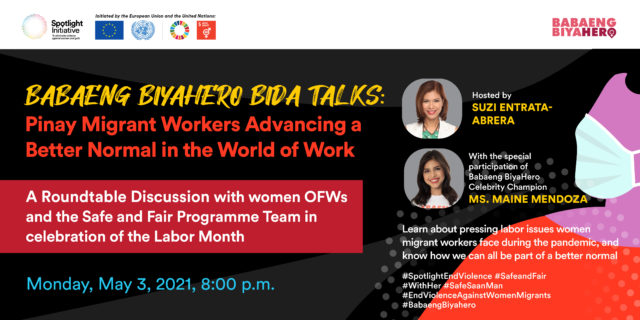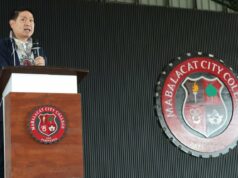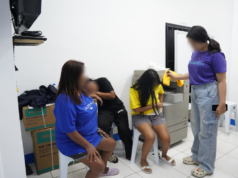MANILA, Philippines – All throughout history, women have continuously played vital roles in their communities. In today’s context, we have seen their strength in full display as hardworking healthcare workers, caregivers, domestic workers, innovators, community organizers, and effective national leaders, among many others. Yet, despite their numerous contributions in the labor sector, many remain at risk having to deal with persistent problems such as discrimination, gender wage gap, and violence.
That is why Safe and Fair Philippines, through its Babaeng BiyaHero Campaign, is recognizing the many contributions women have made to uplift their communities during these challenging times, most especially for those abroad who continue to work at the front lines. In celebration of International Month of Labor, the group hosted “Babaeng BiyaHero Bida Talks: Pinay Migrant Workers Advancing a Better Normal in the World of Work”, a roundtable discussion featuring women overseas Filipino workers (OFWs) who gave their take on the most pressing labor issues that women face today, sharing their personal experiences in dealing with these issues and the work they are doing to promote decent work and a better normal for their fellow migrant workers.
Hosted by Suzi Entrata-Abrera, the panel was also joined by the Safe and Fair Programme team who presented the latest initiatives to support the welfare and protection of women migrant workers, including the Babaeng BiyaHero helpline and mobile app, and advocated for the legislative proposal for gender-responsive protocols in addressing COVID-19.
Better ways of working for the new way of living
Even before the pandemic, thousands of OFWs, majority women, reported gender-based violence (GBV) each year. With the pandemic, they are placed at greater risk for further violence when they are left locked in with abusive employers with barriers in accessing immediate supportive services from their embassies and consulates. The situation today has only highlighted the disproportionate burdens that they carry in and out of the workplace. As of April, more than a quarter million Filipina OFWs, many of whom are domestic workers, have been displaced, repatriated, and are faced with an even more difficult situation of either struggling financially or remaining unemployed when they come back home.
Thankfully, organizations such as the United Domestic Workers of the Philippines (UNITED), Migrants Coordinating Group in Western Visayas, and BATIS Center for Women offer hope for Filipina workers. Created by fellow women migrant workers, these groups aim to support returning OFWs by helping them find sustainable solutions to their financial struggles whether it is through seeking government aid or securing local employment opportunities, among others.
Novelita Palisoc, National President of UNITED shared, “At UNITED we help migrant domestic workers and local domestic workers who face abuse (through coordination of repatriation and other supportive services). We also offer support through mutual aid for deceased members and their families. And as a matter of institutionalization, we negotiate social benefits of domestic workers.”
Women migrant workers are also encouraged to check out the Babaeng BiyaHero helpline and mobile app that assists women by providing them with essential information and services to help them in times of distress or emergency, whether in their countries-of-destination or in the Philippines. These include psychological support and responsive services.
“Since last year, the Babaeng BiyaHero Helpline has responded to requests for assistance due to contract violations, sexual harassment cases, medical repatriation, need for information on livelihood assistance through gender-responsive, survivor-centered, trauma-informed case management, provision of remote psychological first aid, counseling, referral services in coordination with government agencies mandated to extend assistance to migrant workers. Aside from migrant workers, we also provide psychosocial support to frontline workersincluding health workers, social welfare, police officers, and other service providers responding to the needs of women migrant workers subject to violence,” Bing Fortin, Babaeng BiyaHero Psychosocial Social Support Team Lead shared.
The work on women’s rights
As the government continues to formulate rehabilitation programs to address the COVID-19 pandemic, it is essential that the rights of women, both here and abroad, be at the heart of their planning, decision-making, and implementation. In every aspect of labor, women deserve to be heard and to have a better working environment, and now is as perfect a time as ever with the new Gender Responsive and Inclusive Pandemic Management Act of 2021 or “SB 2088 and HB 9059” having been filed last month and now pending legislative approval. The bill addresses the gender-differentiated needs of women including the needs of women migrant workers with provisions on prevention of and response to gender-based violence; and aims to ensure that government agencies have enough power to act on the following:
“We urge our legislators to make the swift enactment of the proposed Gender Responsive and Inclusive Pandemic Management Act of 2021 a priority. Time is of the essence – we are facing the impact of the pandemic which disproportionately affects marginalized groups of women especially women migrant workers. Gender-based violence continues to persist across different spheres – within the homes, the workplace (including abroad), and in public spaces. In celebration of the Labor Month, let this be our tribute to and recognition of the contribution of women migrant workers to our country,” said Charisse Jordan, National Project Officer, UN Women, Safe and Fair Philippines.
Additionally, the national government presented its National Employment Recovery Strategy (NERS) at the Labor Day Job Summit; this includes detailed action plans for the next two years in support of OFWs to get employment, income, livelihood, skills development, or reintegration support. Another instrument that will be essential in a new and better normal, which can strengthen efforts in eliminating violence and harassment in the world of work, is the International Labour Organization (ILO) Convention 190, which workers and migrant groups are advocating for the Philippines to ratify.
“The government launched the NERS on May 1st, which includes priority budgetary and job recovery actions of the government for OFWs. Also, the government and tripartite partners have started efforts to push for the ratification of the ILO Convention 190 on ending violence and harassment in the world of work. OFWs need to remain vigilant in pushing for these,” said Rex Varona, National Project Coordinator, ILO, Safe and Fair Philippines.
The Babaeng BiyaHero campaign calls on government officials, stakeholders, communities, and migrant workers themselves to promote a more equitable, safe, fair, and better normal for every Filipina by ensuring that they are equipped with the knowledge and capability to access effective and timely services that will support them throughout their migration experience. By working together, Safe and Fair Philippines hopes to ensure that a new and better normal is anchored on decent work, gender equality, freedom from violence, and safe and fair labour migration for all Filipino women workers.
Visit and follow the Safe and Fair Philippines Facebook page for more information and the latest updates. Go to the Babaeng BiyaHero website for more information about the situation of Filipina migrant workers, or if you need to contact or report any incidents.





